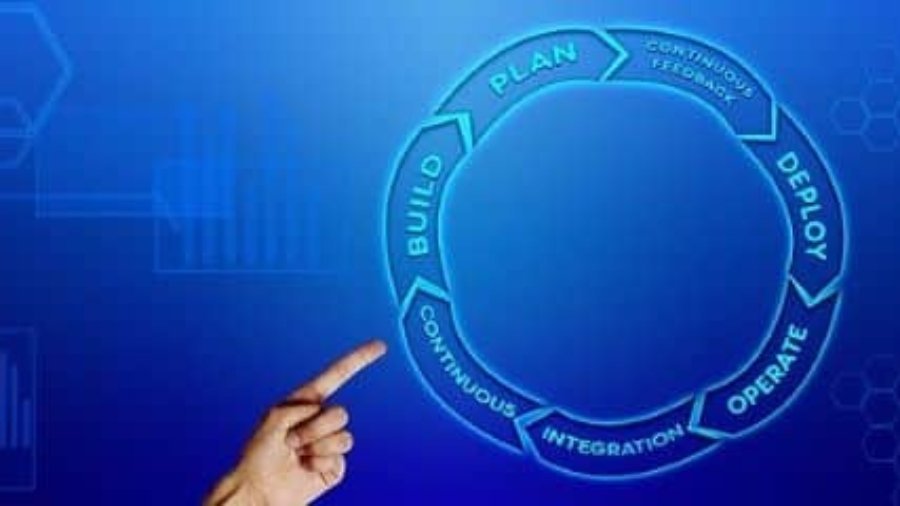DevOps is a software development practice with the goal of shortening the time-to-market of software products and services. DevOps has become a powerful force in technology, and like anything else that becomes powerful it needs to be taken care of properly. That is what DevOps Automation does for you: It ensures your deployments will happen without fail, every step of the way.
- What is DevOps?
- What is Azure DevOps?
- Who is DevOps Engineer?
- Common Misconception about Agile & DevOps
- What is Agile?
1. What Is DevOps
Developing and operating software as a service is called DevOps. In the last few years, the term has become more widely used to describe how software developers collaborate with IT operations teams to deliver on-demand services quickly and efficiently.
By integrating development, systems engineering, and operational goals into one workflow toolkit that helps teams deliver services at high velocity,
DevOps was created to solve some of the problems that happen when companies try to use traditional development methods and practices to build, deploy and support software services.
2. What Is Azure DevOps
Azure DevOps is a service providing a range of tools, services, and cloud resources to help companies streamline their development processes. This can help reduce costs while improving speed and quality. If you are interested in Azure DevOps, read on to learn more about what it is and how it works.
Traditionally, companies have had to rely on third party tools to manage their development processes. Such tools usually do several things, from deploying code to a testing environment, tracking issues and bugs, and automating the deployment of the app.
Unfortunately, this approach poses some challenges such as high costs for the use of such tools, low integration among different tools resulting in duplicated efforts, and a difficult migration process when upgrading to newer versions of the tool.
3. Who Is DevOps Engineer
Devops engineer is an engineer that executes software development and system administration tasks across the full life cycle. In other words, they are “the” people who ensure that the software application is developed in a way that delivers on scope, budget, and timeline goals.
There are many roles within devops engineering such as the developer, operations staffers, cloud monitor staff members, administrators or architects. This will be an informative blog post introducing you to what a devops engineer does.
The devops engineer is responsible for making sure that all stakeholders are happy with the end result product, and are involved in analyzing and hiring staff to be part of the project.
Involved in defining, implementing and maintaining release processes, Release Engineering gives us confidence that software will work correctly in production environments, saving you time and money during the development process.
4. Common Misconception About Agile And DevOps
Most people think that DevOps is about the technology, but it’s about the way people work. It’s not just for technology companies anymore; all companies need to be agile—not just IT companies.
5. What Is Agile?
Agile is a set of software development principles, methods and practices that originated in software engineering. It focuses on rapid development of iterative or incremental increments through small, customer-visible increments of functionality.
Agile methodology emphasizes reacting to the changing environment and changing priorities by continuously adapting working product increments throughout their lifecycle, through collaboration between business and engineering teams.
Agile is not about creating a set of frameworks or methods so that you can be agile all by yourself.
“Agile is a set of values and lessons learned from many years of software development. It has its own world view, which is quite different than the “waterfall” world view.
This involves working iteratively with customers, and with your own internal customer focusing on value and delivery. The resulting product is always built around customer needs and can be changed, redesigned or even thrown away at any time. It’s about doing the right thing for the customer, at the right time.
Related Posts:
- Kubernetes VS Docker: Understanding Containers in 2022
- What Is Cloud Automation? A beginners Guide To Jenkins, Chef, Ansible, Bamboo And Harness
- What is Scalability? How Cloud Helps Solve This Problem?
If you are interested to learn more about our programs and cloud certifications, please feel free to reach out to us at your convenience.

